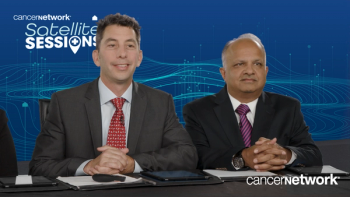
Michael Rosenzweig, MD, MS, presents the clinical scenario of a 68-year-old man with transplant-ineligible newly diagnosed multiple myeloma to the expert panel for discussion.

Your AI-Trained Oncology Knowledge Connection!


Michael Rosenzweig, MD, MS, presents the clinical scenario of a 68-year-old man with transplant-ineligible newly diagnosed multiple myeloma to the expert panel for discussion.
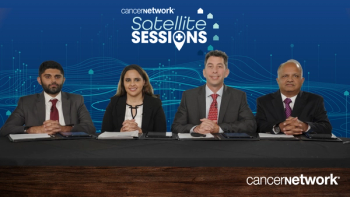
Natasha Garg, DO, MS, and Neel Talwar, MD, explain the resources they utilize at City of Hope for treating patients with high-risk newly diagnosed multiple myeloma.
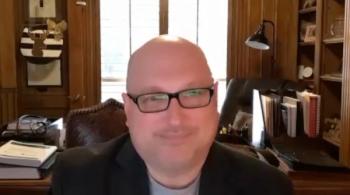
Common adverse effects following treatment with lenvatinib plus pembrolizumab in the phase 3 CLEAR study include diarrhea, hypertension, and fatigue, according to Thomas E. Hutson, DO, PharmD, FACP.
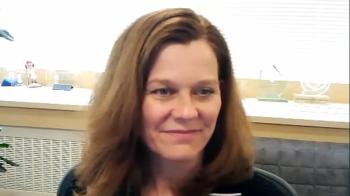
Ann H. Partridge, MD, MPH, talks about how fertility preservation can positively impact the psychosocial health in patients with breast cancer.
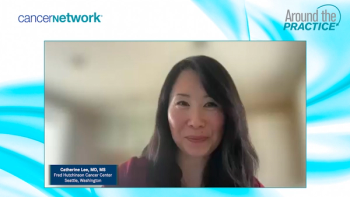
Catherine Lee, MD, MS, details her approaches to tapering steroids in a refractory patient with chronic graft-versus-host disease and the efficacy of different treatments based on organ involvement.
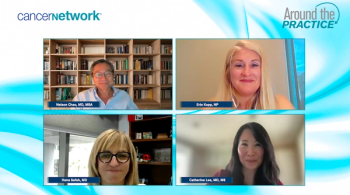
Nelson Chao, MD, MBA, presents the clinical scenario of a 52-year-old woman with chronic graft-versus-host disease for discussion.
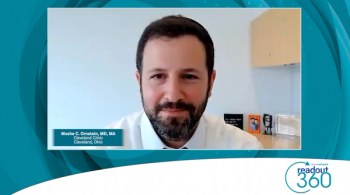
Centering discussion on sarcomatoid and rhabdoid non-clear cell renal cell carcinoma, panelists consider frontline IO-based regimens and their value in this setting.
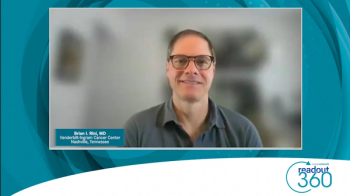
A brief discussion centered on optimal treatment strategies for patients with chromophobe or papillary kidney cancers.
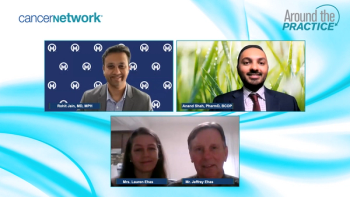
Drs Jain and Shah discuss the future of patient care in metastatic bladder cancer, while Mr. and Mrs. Ehas share advice for patients with bladder cancer, advice for caregivers and closing thoughts on their overall journey.
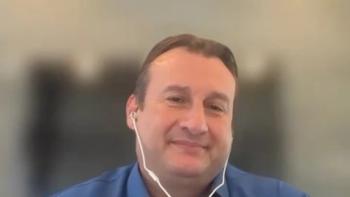
Implementing tax benefits for manufacturers who produce chemotherapy drugs may be one solution to increase drug production in the United States, according to Lucio N. Gordan, MD.

Lucio N. Gordan, MD, describes how his practice deals with increasing costs of limited chemotherapy agents to ensure that patients with cancer continue to receive treatment.
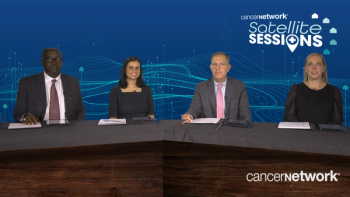
A detailed overview of therapeutic options for patients undergoing treatment for newly diagnosed multiple myeloma.

A panel of experts on multiple myeloma discuss the decision to refer patients with newly diagnosed multiple myeloma for transplant.

Lucio N. Gordan, MD, also discusses how increasing domestic manufacturing of chemotherapy may help in alleviating the ongoing shortages of carboplatin and cisplatin in the United States.

A panel of experts from City of Hope and satellite clinics review the available frontline therapy options for patients with transplant-eligible newly diagnosed multiple myeloma.

Michael Rosenzweig, MD, MS, presents the clinical scenario of a 61-year-old woman with transplant-eligible newly diagnosed multiple myeloma to the panel for discussion.
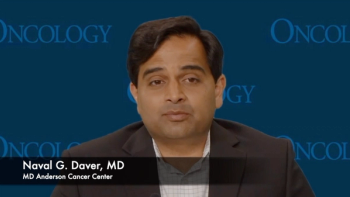
Luspatercept, which is now FDA approved for myelodysplastic syndromes, may help patients achieve transfusion independence.

Experts discuss the second-line treatment options for chronic graft-vs-host disease when steroids fail, including ruxolitinib.
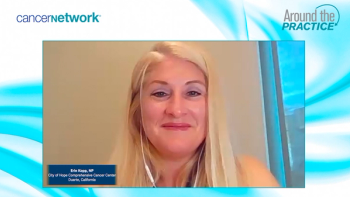
Erin Kopp, NP, emphasizes the importance of identifying patient response to steroids, establishing steroid dependence, and using a systematic tapering regimen for effective management of chronic graft-vs-host disease.

Key opinion leaders in the field of renal cell carcinoma management reflect on recent data with IO/TKI combination therapy in patients with non-clear cell disease.
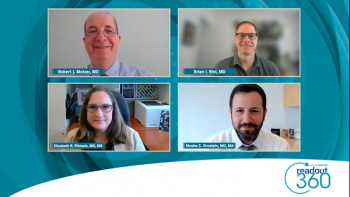
Switching its focus to non-clear cell RCC, the panel reviews data presented at ASCO 2023 on KEYNOTE-B61, combining lenvatinib + pembrolizumab in this setting.

Focusing on immunotherapy management for metastatic bladder cancer, Dr Shah shares notable toxicities, relevant real-world data, and emergent data on maintenance therapy.

Dr Jain discusses latest data in frontline and maintenance therapy for metastatic bladder cancer and Mr. Ehas shares his experiences during the course of his treatment.
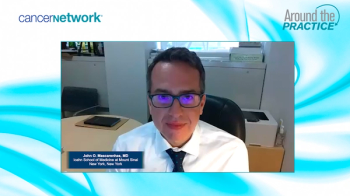
Panelists share key takeaways on management strategies in myelofibrosis and hope for future evolutions in the treatment paradigm.
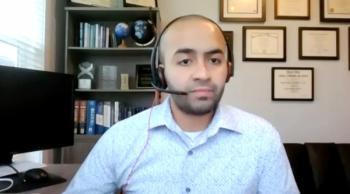
Kirollos Hanna, PharmD, BCPS, BCOP, FACCC, believes that national legislation can help to resolve the United States’ current dearth of cisplatin, as well as prevent future problems.

Using an AUC of 5 instead of an AUC of 6 can help to conserve cisplatin among patients with cancer, Kirollos Hanna, PharmD, BCPS, BCOP, FACCC says.
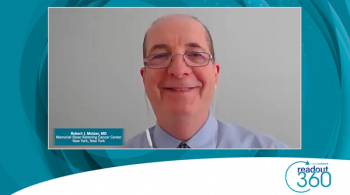
Panelists shed light on key factors that help to inform the selection of frontline therapy in patients with advanced clear cell renal cell carcinoma.

The panel reviews treatment approaches for graft-versus-host disease when steroids are not an option and explains how the heterogeneity of GVHD makes finding the right treatment challenging.
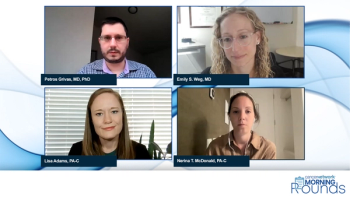
Closing out their panel on advanced bladder cancer management, key opinion leaders share their excitement for future evolutions within the treatment landscape.
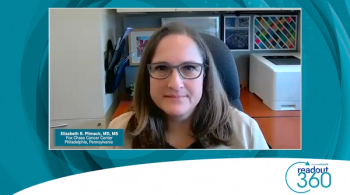
In the context of the available frontline treatment armamentarium for advanced clear cell RCC, key opinion leaders consider how they would select or sequence therapy.